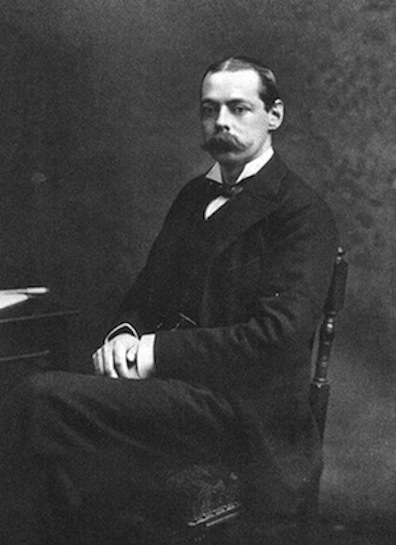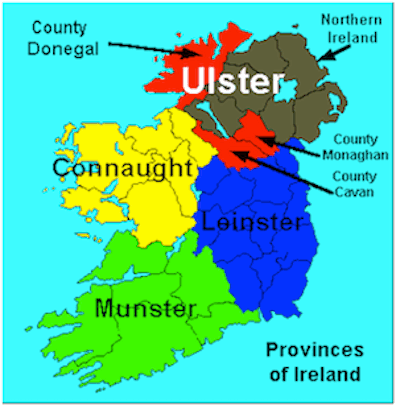
Lord Churchill in 1883, from his son's biography. Source: Wikimedia Commons.

Arrows indicate the six Ulster counties that chose to remain in the Union, and the three that chose to join the Republic. Source: malseed.com.
Ulster will fight
During the political battles over Home Rule that stretched from the 1870s to the early 90s, the phrase "For Ulster will fight, and Ulster will be right" became a rallying cry for the Protestant Unionists in the North who wished to defeat the movement. Stephen scathingly (though silently) recalls this recent verbal bauble of the loyalists, just as he earlier thought of older cultural memes: "Glorious, pious and immortal memory.... The black north and true blue bible. Croppies lie down."